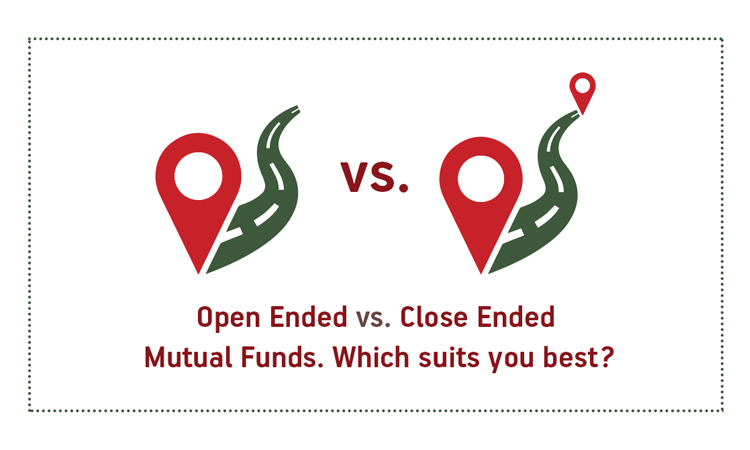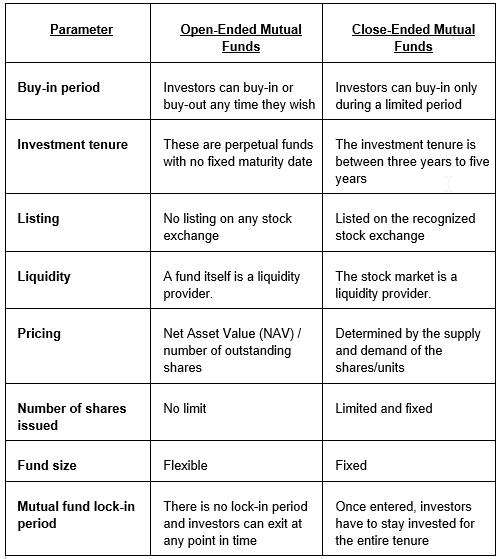
Mutual funds are a good concept to balance out between risk and return. It allows you to earn considerable returns with low risk. On various factors like the nature of the investment, risk profile, time horizon, etc. One more factor is based on its structure - open-ended and close-ended mutual funds. Let's understand them and discuss them in detail.
Every mutual fund is initiated by a new fund offer (NFO). When an investor applies for a mutual fund during this period they get units allotted at NFO price. It benefits the investor to enter and exit from the fund anytime. Whereas a closed ended fund does not permit the entry and exit of investors after the NFO period. Close-ended funds generally in 3 to 4 years after being launched.
How to choose between Open-ended and close-ended mutual funds?

Open-Ended Schemes- At Glance
In the schemes, you can buy and sell units continuously. Thus, it allows the investor to enter and exit according to their benefit. In this scheme, the units can be bought or traded even after the NFO period at net asset value (NAV). The value of the extra unit goes higher or lower each time the Asset Management Company gives or repurchases the current units.
Closed Ended Scheme- At Glance
In this scheme, a specific number of units and in NAV (net asset value) is fixed. Unlike in open-ended schemes investors cannot buy the units after the NFO period is over. This means the investor cannot enter or exit till the tenure of the scheme ends. However, to maintain liquidity AMC lists these close-ended schemes on the stock exchange. Also, in the interest of these investors, SEBI ensures that these funds provide at least one or two avenues to enter or exit.
Conclusion
So in our discussion on open-ended vs closed-ended mutual funds, open-ended schemes are the most suitable investment for new investors. It gives the benefit like the capacity to diversify their investment, maintain them according to their risk profile and liquidity requirement by giving them the access to redeem their investments at any point in time.
On the other hand, close-ended schemes are traded just like any other stock in the stock exchange which makes it a little difficult for a new investor because liquidity speaks in such schemes which can be hard in case one has some financial emergency.
Therefore you can go forward examine these options and choose any structured mutual fund which suits your requirement.
People often ask
- How do I buy open-ended mutual funds?
- How are closed end fund dividends taxed?
- Are ETFs open-ended or closed-ended?
- Can I buy closed end funds?
- What are the disadvantages of closed end funds?
You can easily buy the open-ended mutual funds after the NFO period at NAV daily.
Closed-end funds are taxed at the end of the financial year as taxation on capital gains.
No, ETFs are neither closed nor open-ended mutual funds rather they are separate investment funds on the stock exchange.
Closed-end funds can be easily bought through the brokerage account of a person, just like stocks,
The biggest disadvantage of closed-end funds is that one has to pay a much higher amount to buy the funds, moreover, they have to pay a brokerage commission every time they buy or sell these funds.